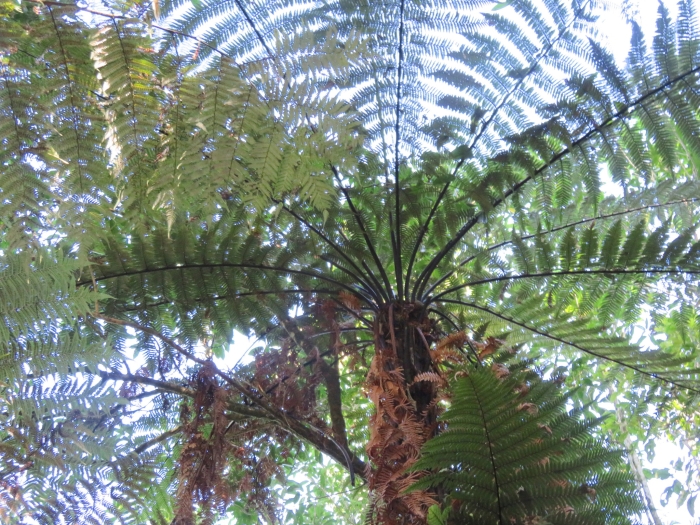New Zealand Tree Fern
(Dicksonia squarrosa)
New Zealand Tree Fern (Dicksonia squarrosa)
/
/

Jenny Christianson
CC BY 4.0
Image By:
Jenny Christianson
Recorded By:
Copyright:
CC BY 4.0
Copyright Notice:
Photo by: Jenny Christianson | License Type: CC BY 4.0 | License URL: http://creativecommons.org/licenses/by/4.0/ | Rights Holder: Jenny Christianson | Publisher: iNaturalist | Date Created: 2019-05-01T14:04:22-07:00 |





















































Estimated Native Range
Summary
Dicksonia squarrosa, commonly known as New Zealand Tree Fern, is an evergreen fern native to the temperate rainforests of New Zealand. It thrives in moist, shaded environments and is often found in forest understories and along stream banks where the soil remains damp. This species can grow up to 6 meters (20 feet) tall, with a moderate to fast growth rate of 10–80 cm (4–31 inches) per year. The New Zealand Tree Fern has a distinctive appearance with a thick, fibrous trunk topped by a crown of arching, green fronds that can reach several meters in length. The fronds are small and compact, contributing to its popularity as a container or garden plant in limited spaces.
The New Zealand Tree Fern is valued for its lush, prehistoric appearance and its ability to create a tropical ambiance in temperate gardens. It is often used as a focal point in shady garden areas or as part of a fernery. In cultivation, it requires consistent moisture and is best grown in part shade, although it can tolerate some sun and wind. Soil should be rich, well-draining, and kept consistently moist. During winter in cooler climates, protection such as shadecloth cover or straw packed in the crown is recommended to prevent frost damage. This species has been awarded the Royal Horticultural Society’s Award of Garden Merit for its ornamental qualities and adaptability in gardens. Potential problems include sensitivity to cold and susceptibility to scale insects and mealybugs.CC BY-SA 4.0
The New Zealand Tree Fern is valued for its lush, prehistoric appearance and its ability to create a tropical ambiance in temperate gardens. It is often used as a focal point in shady garden areas or as part of a fernery. In cultivation, it requires consistent moisture and is best grown in part shade, although it can tolerate some sun and wind. Soil should be rich, well-draining, and kept consistently moist. During winter in cooler climates, protection such as shadecloth cover or straw packed in the crown is recommended to prevent frost damage. This species has been awarded the Royal Horticultural Society’s Award of Garden Merit for its ornamental qualities and adaptability in gardens. Potential problems include sensitivity to cold and susceptibility to scale insects and mealybugs.CC BY-SA 4.0
Plant Description
- Plant Type: Fern
- Height: 10-20 feet
- Width: 9-16 feet
- Growth Rate: Moderate
- Flower Color: N/A
- Flowering Season: Non-Flowering
- Leaf Retention: Evergreen
Growth Requirements
- Sun: Part Shade
- Water: Medium, High
- Drainage: Medium
Common Uses
Low Maintenance, Salt Tolerant
Natural Habitat
Temperate rainforests and forest understories along stream banks in New Zealand
Other Names
Common Names: Hard Treefern, Rough Tree Fern, Slender Tree Fern, Wheki
Scientific Names: , Dicksonia squarrosa, Balantium squarrosum, Trichomanes squarrosum, Dicksonia gracilis, Dicksonia squarrosa var. gracilis,
GBIF Accepted Name: Dicksonia squarrosa (G.Forst.) Sw.